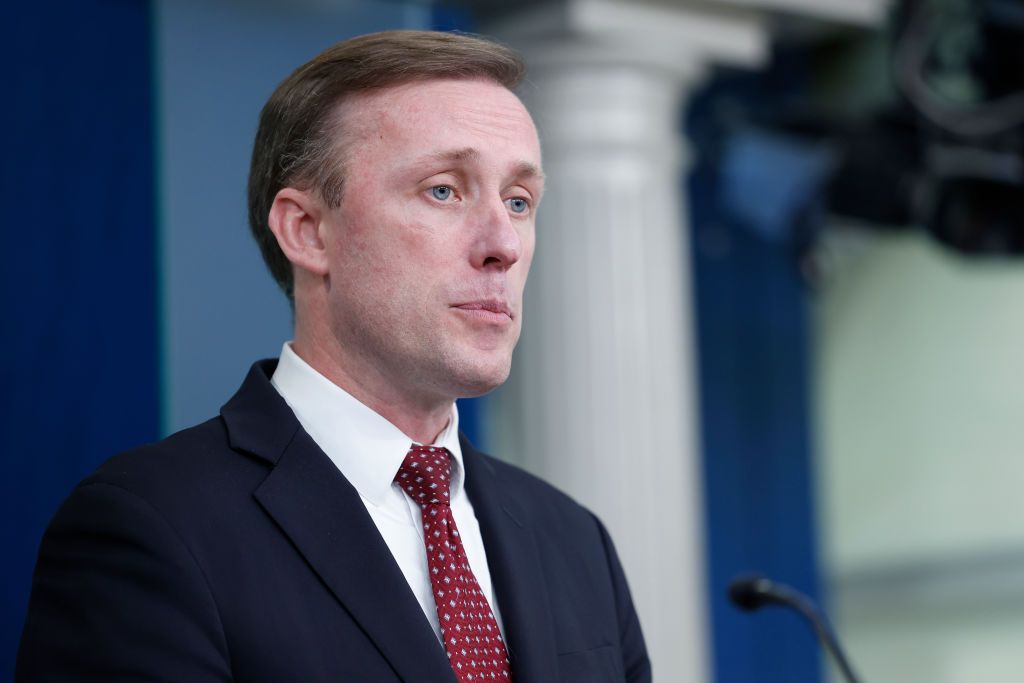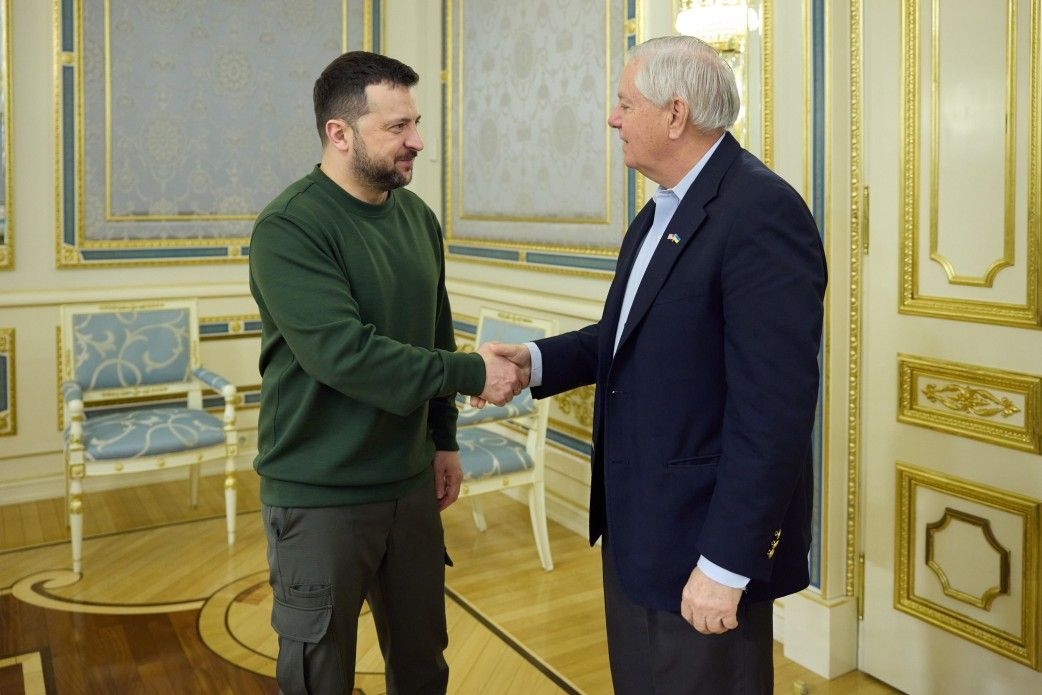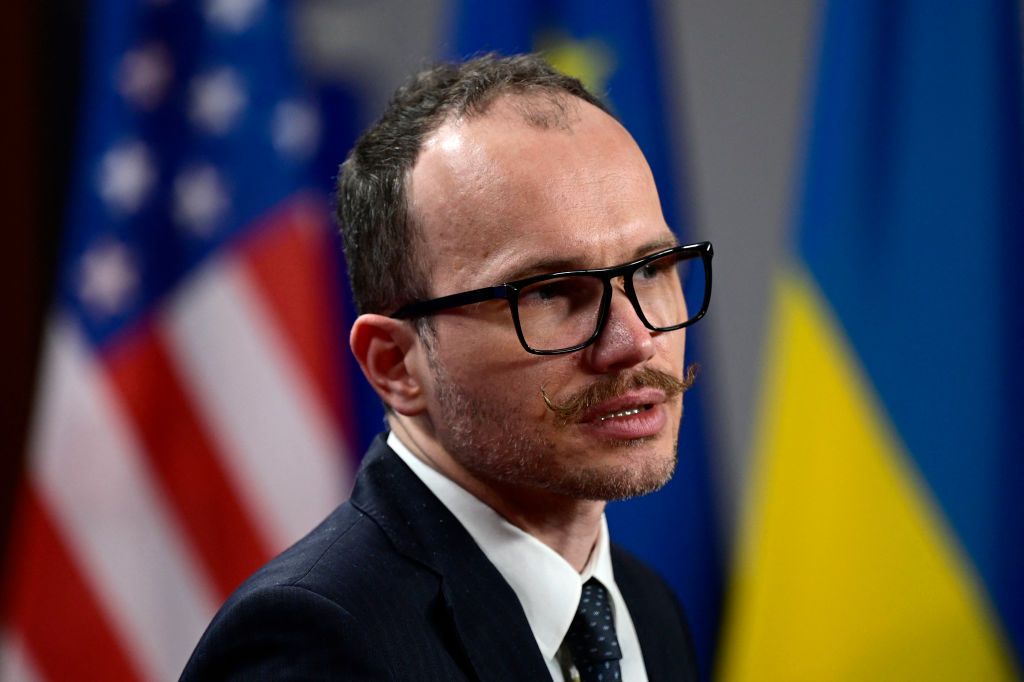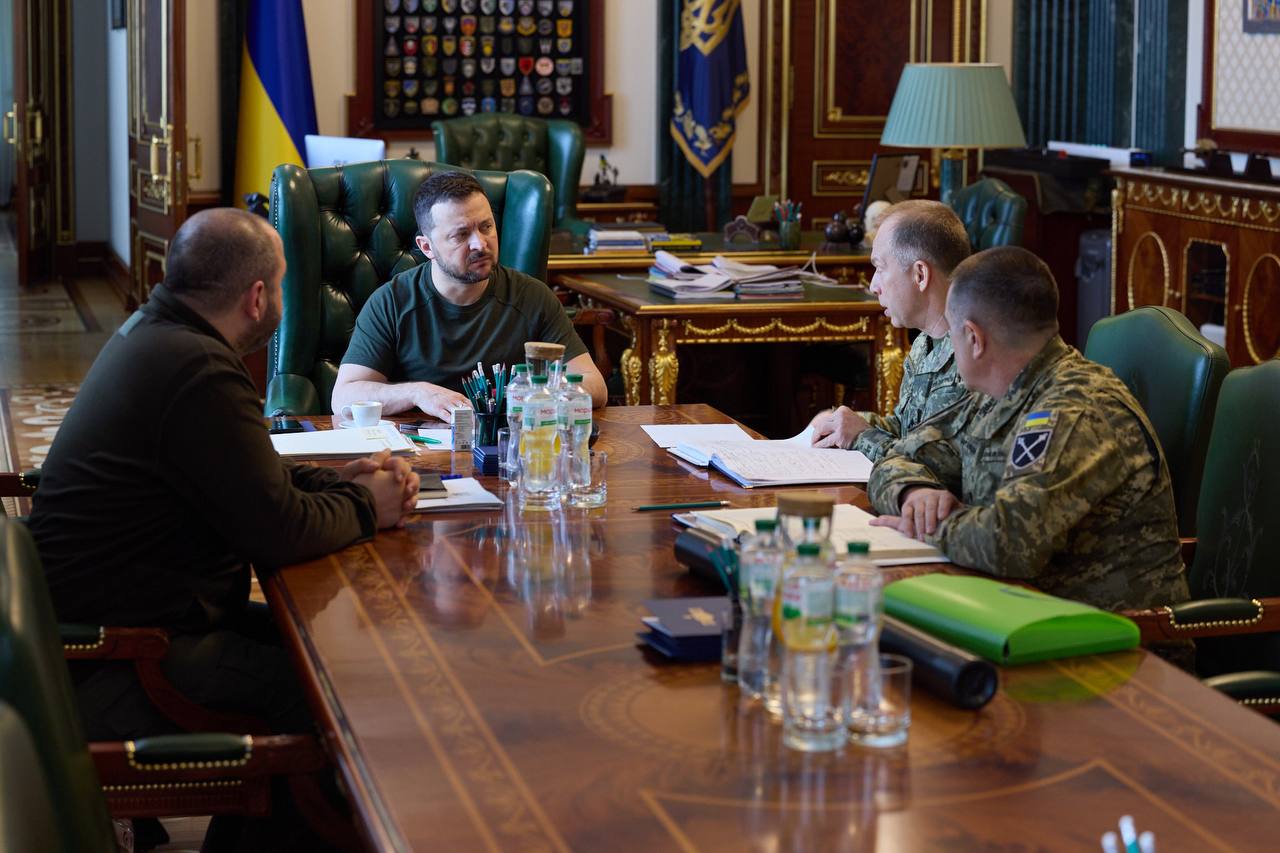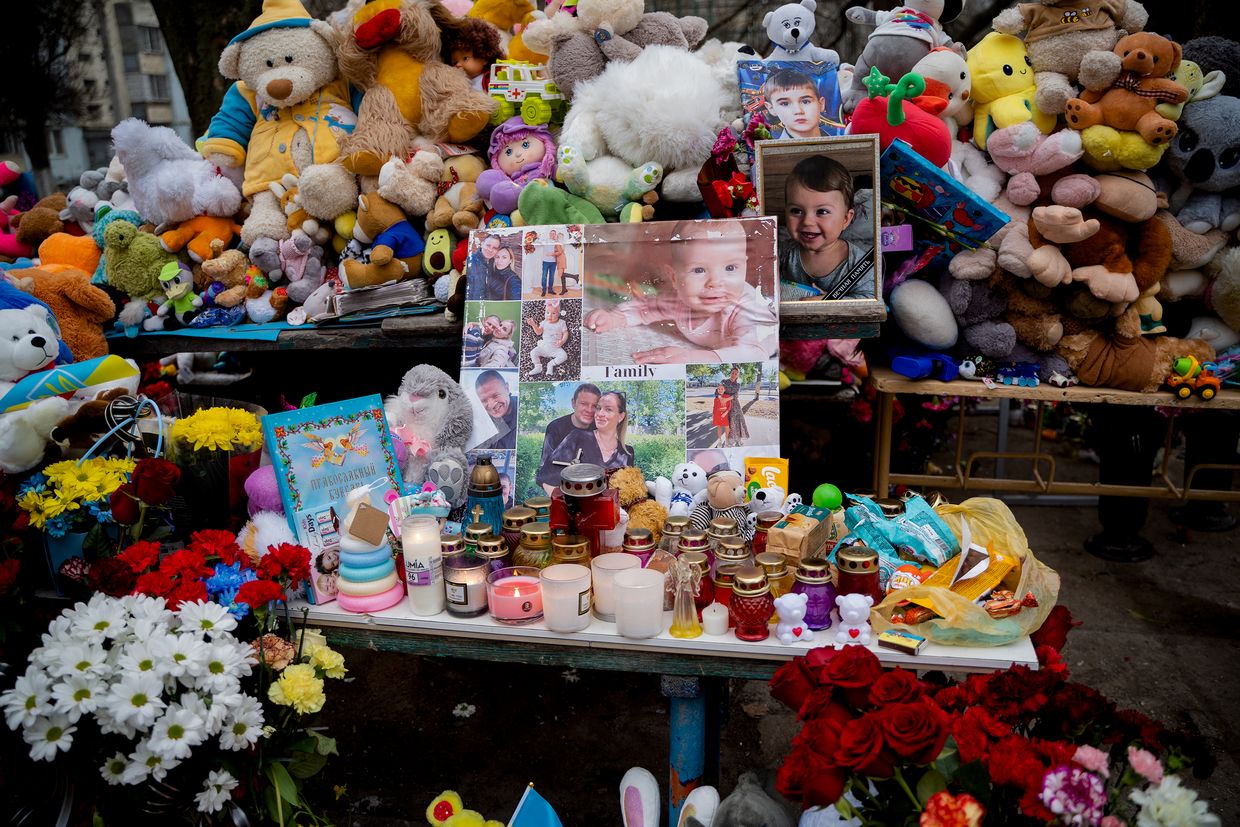Ukraine war latest: EU gives final approval of $5.5 billion in defense aid to Kyiv

Key developments on March 17-18:
- EU gives final approval to $5.5 billion for military aid to Ukraine
- Deputy minister: Russia fires 7 times more shells than Ukraine
- US Senator Graham in Kyiv: 'If you want aid to Ukraine, you'd better start talking to American taxpayers'
- Ukrainian government allocating $128 million for procurement of attack drones
- WSJ: Ammunition suppliers for Czech-led initiative to aid Ukraine include Russian allies, Czech officials say
- Russian attacks against Kherson, Kharkiv oblasts injure 6 over 24-hour period
EU foreign ministers agreed to allocate additional 5 billion euros ($5.5 billion) in defense assistance for Ukraine in 2024 within the framework of the European Peace Facility (EPF), Foreign Minister Dmytro Kuleba announced on March 18.
The EPF has been a key tool for supporting Ukraine's defense capabilities since 2022 but has been largely depleted as member states disagreed on the best way to replenish it and unlock further cash for Ukraine.
"With the fund, we will continue to support Ukraine defend itself from Russia’s war of aggression with whatever it takes and for as long as we need to," Josep Borrell, the EU's chief diplomat, said in a statement.
Budapest, which consistently undermined Western aid efforts for Ukraine, "constructively abstained" during the vote and did not block the decision, Zoltan Kovacs, the Hungarian government spokesperson, wrote on X.
The funds to purchase military supplies for Ukraine will be disbursed via the Ukraine Assistance Fund, a newly created tool under the EPF.
At a meeting of the EU Foreign Affairs Council, Kuleba also urged European allies to take all necessary decisions as soon as possible to increase and accelerate the supply of weapons and ammunition to Ukraine.
Foreign arms supplies are now critical for Kyiv as assistance from the U.S., a key military donor, has been stalled for months by domestic political infighting.
The Financial Times reported on March 12 that EU member states are near a deal on additional funds for Ukraine's defense. According to the outlet, the agreement will prioritize weapons produced inside the EU but will not exclude those manufactured outside the bloc.
Deputy minister: Russia fires 7 times more shells than Ukraine
The consumption of artillery shells since the beginning of 2024 is seven to one in Russia's favor, Lieutenant General Ivan Havryliuk, deputy defense minister, said in an article for Ukrinform published on March 18.
Ukraine faces an ongoing ammunition shortage, with the country being in dire need of shells and missiles.
Delays in U.S. military assistance, caused by disputes in Congress, have already had a direct impact on the battlefield, contributing to the loss of the key front-line city of Avdiivka. Several European countries joined a Czech-led initiative to procure 800,000 sorely needed artillery shells for Ukraine.
In fact, Moscow is not reducing the intensity of fire and expects that "they will have enough shells to dominate the battlefield for a long time," Havryliuk wrote.
"This firepower is provided not only by Russian factories. The North Korean regime is helping the Russians with weapons in significant quantities," the general said. "(Ukraine's) stocks of ammunition of certain nomenclatures are falling to a critical level."
Pyongyang has reportedly provided Moscow with at least 1 million shells, as well as short-range ballistic missiles and other weaponry. Russia has used around 50 North Korean missiles to attack six Ukrainian oblasts since the beginning of the all-out war, according to Kharkiv Oblast Prosecutor's Office.
Another factor that makes it difficult for the Ukrainian military to fulfill its tasks is Russia's superiority in combat aircraft, which "the long-awaited F-16 fighter jets are supposed to break," said the deputy minister.
"Since the beginning of this year (in 77 days), enemy's aircraft have dropped more than 3,500 bombs on our positions, which is 16 times more than in 2023," Havryliuk said.
After a meeting with the military leadership on March 18, President Volodymyr Zelensky said that he had received data on ammunition consumptions and supplies. The procurement and production of equipment, weapons, and shells have also been discussed, according to him.
Russia is producing close to 250,000 artillery munitions monthly, or around 3 million per year, which is nearly three times as many artillery munitions as the U.S. and Europe can send to Ukraine, CNN reported on March 11, citing NATO intelligence estimates and unnamed sources familiar with the matter.

US Senator Graham in Kyiv: 'If you want aid to Ukraine, you'd better start talking to American taxpayers'
President Volodymyr Zelensky held a meeting with U.S. Senator Lindsey Graham in Kyiv on March 18, according to the President's Office.
This is Graham's fourth visit to Ukraine since the beginning of Russia's full-scale war.
He arrived as U.S. aid to Ukraine remains stalled. While the Senate approved a $95 billion funding package on Feb. 13 that contained $60 billion in aid for Kyiv, the package still faces an uphill battle in the Republican-controlled House of Representatives.
Graham voted repeatedly against the $60 billion package, declaring in February that he talked to former U.S. President Donald Trump, who is "dead set against this package."
At a press conference in Kyiv, Graham said 70% of Republicans in the Senate understand the need for aid for Ukraine, stressing that if Russian President Vladimir Putin is not to be stopped now, there will be "a war between Russia and NATO."
Yet, he added that as political leaders, they need to address their own people, too, highlighting three topics of focus: U.S. debt, security of the border, and helping U.S. allies "with a new way of doing business."
"If you want aid to Ukraine, you'd better start talking to American taxpayers," he said.
Graham called Trump's support of further military assistance to Ukraine in the form of a loan a "step forward,"adding that the U.S. has a "broken border," and it is hard for him to talk about Ukraine aid without mentioning the border issue.
"I want the Russians not only to see the aid coming this spring, but we have come up with a model to make it more sustainable for the Ukrainian people," the senator said.
"You are going through hell. I want to help you. We have problems at home, too. I am trying to make this a win-win. I am going to the Mideast to say the same thing," he added.
Graham expressed full support for Ukraine on its path in attempts to join NATO and said that he wanted to provide Ukraine with as much weaponry as possible to achieve "a qualitative advantage on the battlefield."
"I'm hopeful that the ATACMS will be announced any moment now," Graham added, recalling the delivery of F-16s as well and expressing hope for signing a security guarantee between Ukraine and the U.S. "this year."
On March 12, the U.S. pledged a defense aid package of weapons and equipment for Ukraine worth $300 million, the first since December.
"It is critically important for us that the Congress soon completes all the necessary procedures and makes a final decision on the allocation of macro-financial assistance to Ukraine that will strengthen the Ukrainian economy and our Armed Forces," Zelensky said.
Zelensky briefed Graham on the situation on the battlefield and highlighted "the critical importance" of further supplies of weapons, including air defense systems and missiles.
The consumption of artillery shells since the beginning of 2024 is seven to one in Russia's favor, according to Lieutenant General Ivan Havryliuk, deputy defense minister. Munitions for some of Ukraine's air defense systems may be used up by the end of March, the Washington Post reported on March 15, citing unnamed Western officials.
Ukrainian government allocating $128 million for procurement of attack drones
The Ukrainian government is allocating an additional Hr 5 billion (around $128 million) to purchase attack drones for the military, Economy Minister Yuliia Svyrydenko announced on March 18.
Drones have been a key tool in Ukraine's defense against Russia's war. President Volodymyr Zelensky has said that surpassing Russia in drone operations is one of the top priorities in 2024.
Zelensky also signed a decree on Feb. 6 creating a separate branch of Ukraine's Armed Forces dedicated to drones. It will reportedly focus on creating special drone-specific units, increasing production, ramping up training, and pushing innovations.
The additional money for the procurement of drones will be drawn from the state budget’s reserve fund, Svyrydenko said, as cited by the Economy Ministry on Facebook.
“In total, agreements with drone manufacturers worth about HR 30 billion ($769 million) have already been concluded, and contracts with a total value of Hr 14 billion ($359 million) are being prepared. And, of course, this is not the limit,” she added.
According to Svyrydenko, the Ukrainian government will continue both planned and operational financing for the procurement of drones.
Ukraine has the capacity to produce 150,000 drones every month and may be able to produce two million drones by the end of the year, Strategic Industries Deputy Minister Hanna Hvozdiar said on air on March 5.
More than 200 Ukrainian companies are involved in developing drones, of which almost 60 have received orders from the government, according to Hvozdiar.
WSJ: Ammunition suppliers for Czech-led initiative to aid Ukraine include Russian allies, Czech officials say
The ammunition suppliers taking part in the Czech-led initiative to provide Ukraine with artillery shells include "some allies of Russia," the Wall Street Journal (WSJ) reported, citing unnamed Czech officials.
Czech President Petr Pavel said in February that Prague had identified 500,000 155 mm shells and 300,000 122 mm shells outside the European Union that could be bought and sent to Ukraine after the necessary funds were allocated to the initiative.
Czech Prime Minister Petr Fiala said on March 12 that the initiative had secured the purchase of 300,000 shells and received non-binding commitments for 200,000 more.
The Czech officials told WSJ that Prague had managed to utilize its good relations with many nations in the Global South that have large stockpiles of Soviet-era arms and the ability to produce more.
They did not specify which Russian allies were among the ammunition suppliers involved in the deal.

Similar requests by the U.S. and Western European countries to potential suppliers in Africa, Asia, and Latin America were previously rejected, according to Western officials cited by the media outlet.
Around 20 countries have so far joined the Czech-led initiative to help finance the delivery of ammunition. Germany has pledged over 500 million euros ($544 million), which is the biggest commitment among the participants, the Czech officials said.
Acting as a middleman, Czechia reportedly reached out to countries it knew had either the manufacturing capacity or compatible ammunition in storage and connected them with a Western country that would place an order and pay for shipping.
Czechia would then organize the logistics, with the supplies going either through its own borders or through third countries, covering any direct link between the country of origin and Ukraine so as not to reveal the supplier to Moscow, WSJ wrote.
"Confidentiality is key here: We talk and will talk to anyone, no matter what their allegiance or political stance is — with a very few exceptions, such as North Korea," Tomas Pojar, the Czech government's national security adviser, told the outlet.
The Czech initiative revealed a discrepancy between some governments' public friendliness toward Russia and their openness to privately doing business with Ukraine's allies, said Jan Jires, deputy minister of defense.
According to Fiala's security advisor, Tomas Pojar, the ammunition rounds could start flowing to Ukraine by June.
Artillery shells are a crucial capability for Ukraine as the country faces critical ammunition shortages. Delays in U.S. military assistance, caused by disputes in Congress, have already had a direct impact on the battlefield, contributing to the loss of the key front-line city of Avdiivka.
Russian attacks against Kherson, Kharkiv oblasts injure 6 over 24-hour period
Russian strikes against Ukraine’s Kherson and Kharkiv oblasts wounded six people over the past day, including two medical workers, regional officials reported early on March 18.
Settlements in Kherson and Kharkiv oblasts are subjected to regular Russian strikes due to their proximity to the front line. The northeastern Kharkiv Oblast also borders Russia’s Belgorod region, making it more vulnerable to Russian attacks.
Russia hit around 15 settlements in Kharkiv Oblast between March 17-18 with various weapons, injuring five people in the cities of Vovchansk and Zolochiv and the villages of Kivsharivka, Buhaivka, and Bilyi Kolodiaz, Governor Oleh Syniehubov reported.
Among the injured were two medics aged 26 and 56, according to Syniehubov.
The attacks reportedly damaged a fire station, several houses, two educational facilities, outbuildings, and cars.
Russian forces struck multiple settlements in Kherson Oblast, damaging three apartment buildings, nine houses, port infrastructure, a gas filling station, and a car service enterprise, according to Oleksandr Prokudin, the regional governor.
One person was wounded as a result of Russian attacks on the region, Prokudin said on Telegram.


